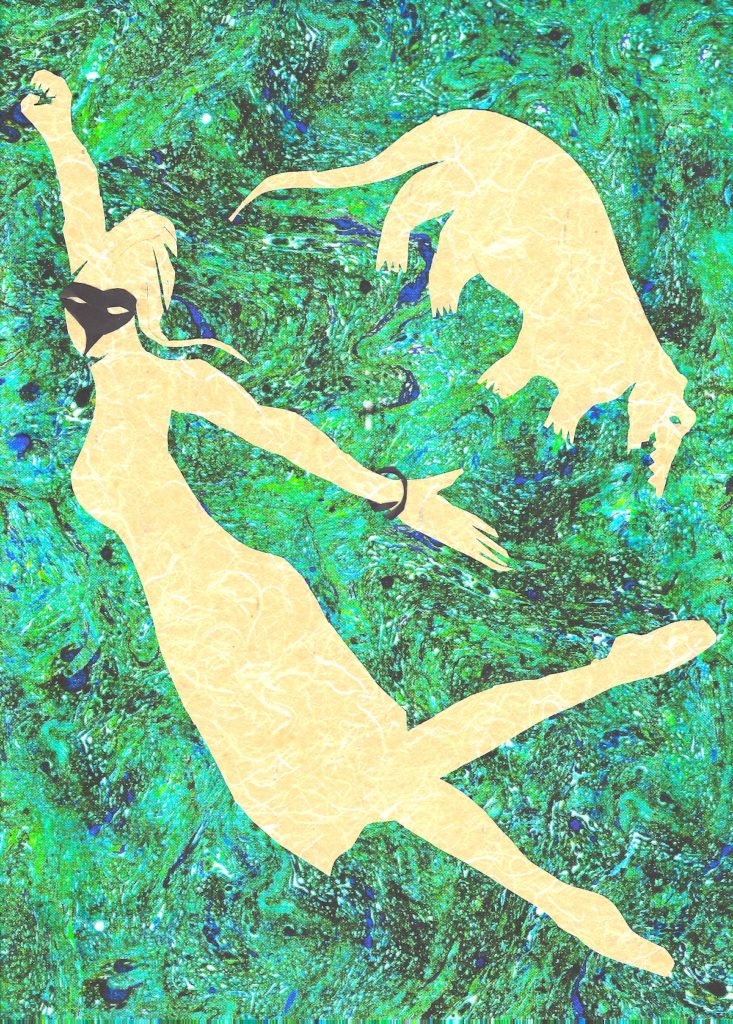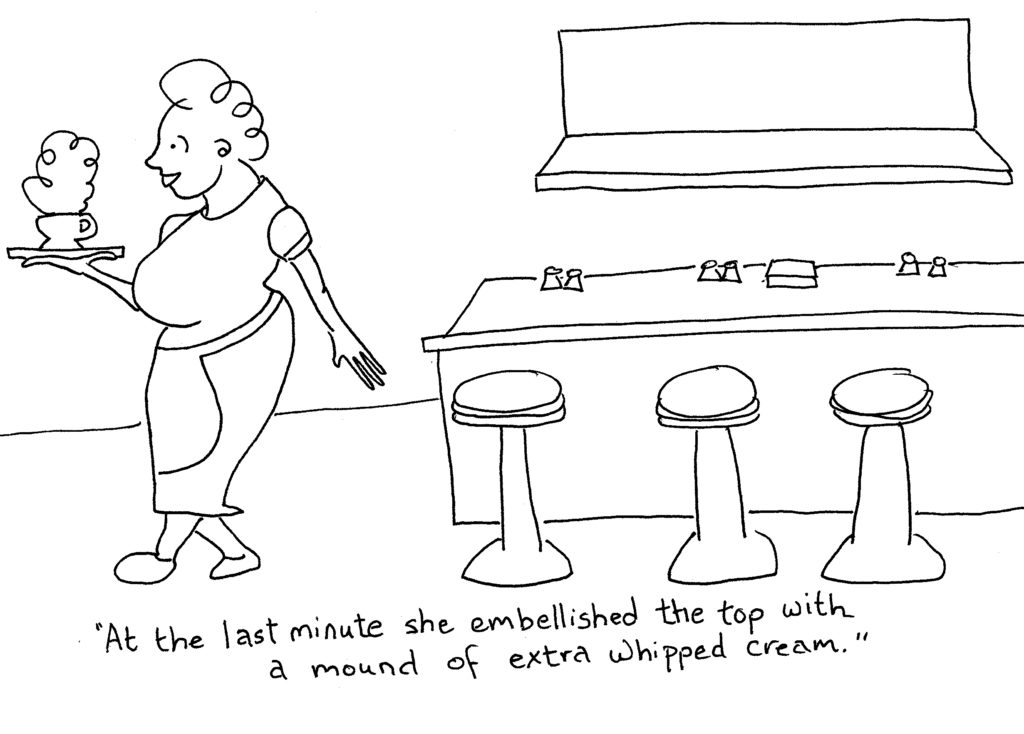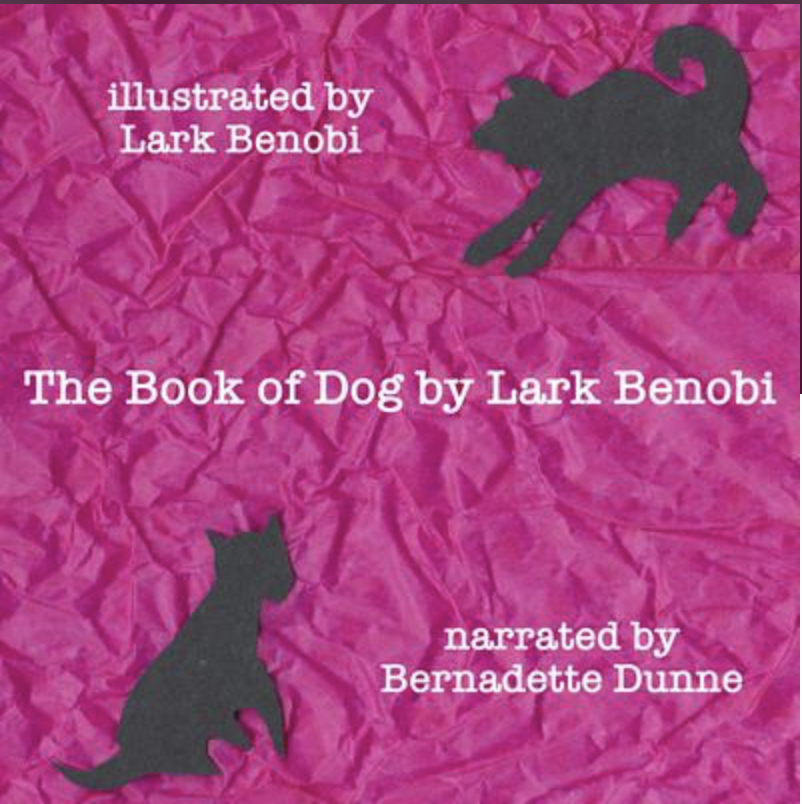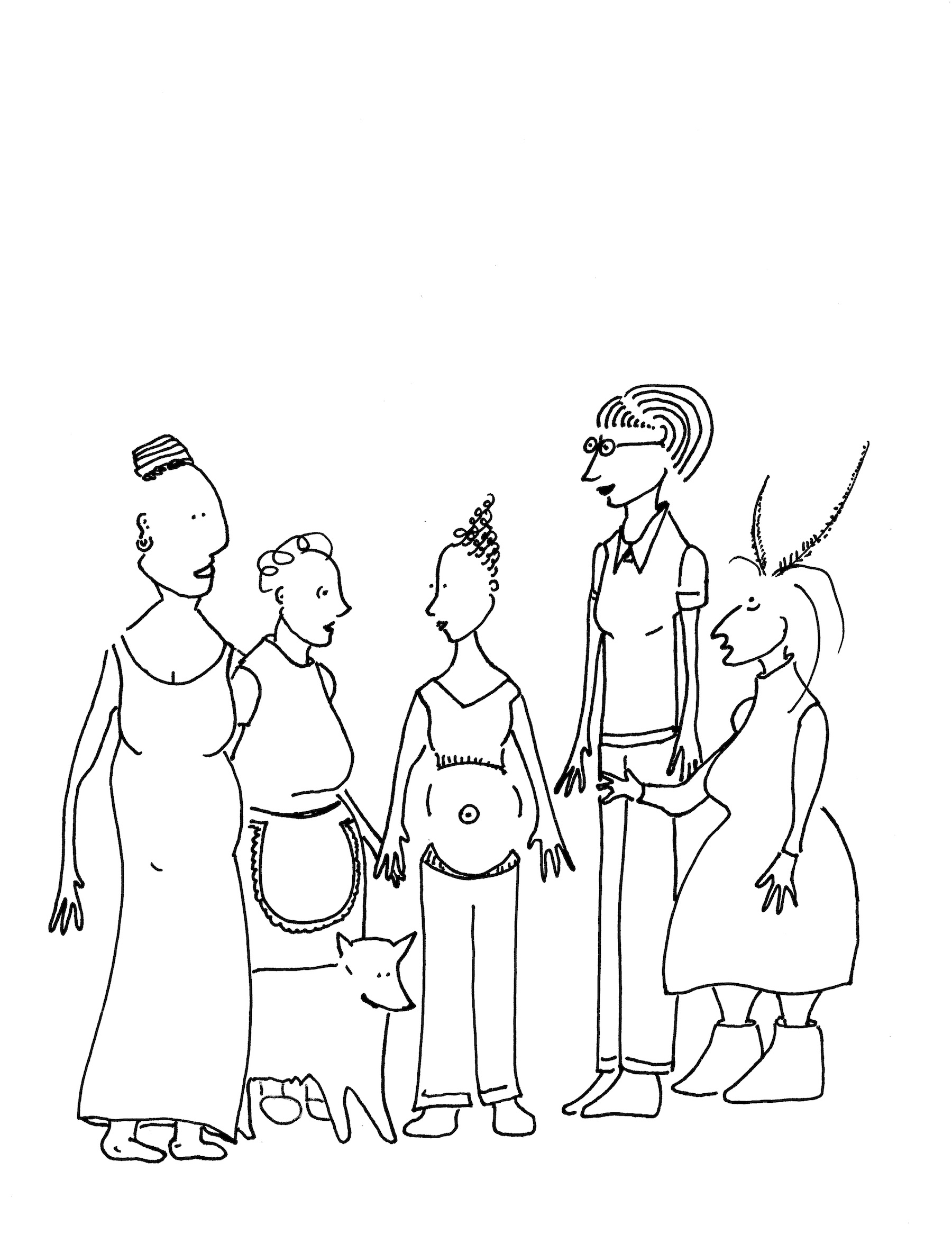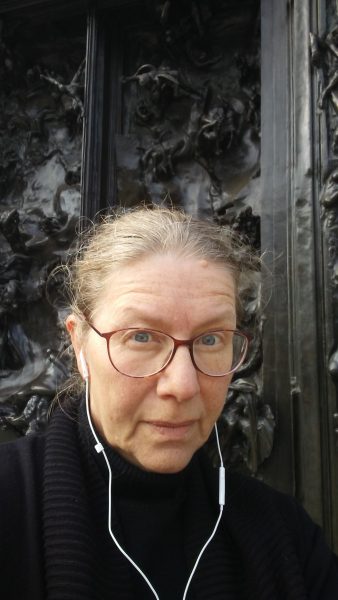“Here is your father, owl-baby, in a nutshell: He has complete faith that, now that he’s involved in the day-to-day, you’ll shape right up. ‘Once we apply the right parameters, she’ll outgrow it,” he says to me. ‘Don’t you think she’ll outgrow it, once we apply the right parameters?’ And in a swift and manly motion he picks you right up off the floor and tosses you toward the ceiling a few times, the way he imagines fathers toss their children, before setting you back down.”(from my not-yet-published, just-finished novel.. )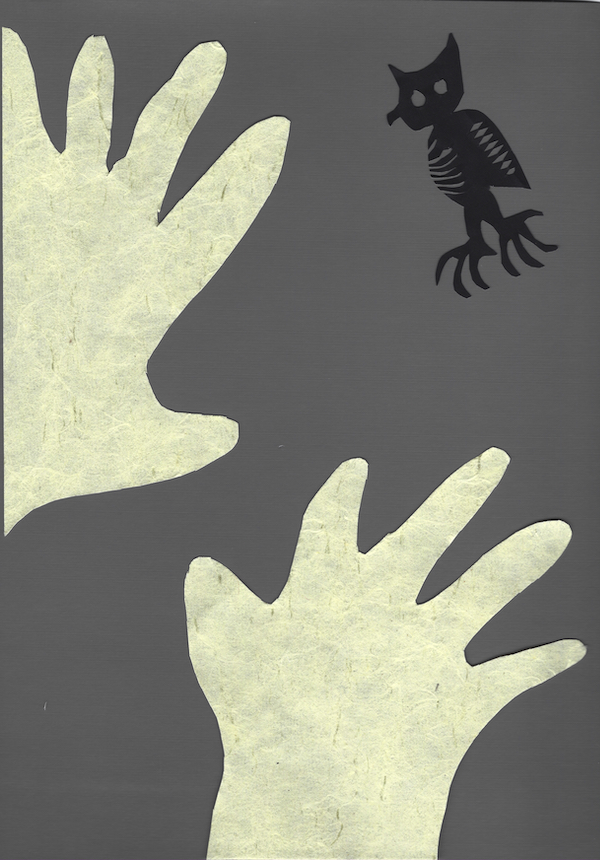
Posts
“The next day the school summons me back to sign some papers. I take you along with me, owl-baby, to remind them that you, like any other child, deserve understanding, and also because I have no choice—there is no sitter left in all of Sacramento, I think sometimes, who hasn’t heard of you. You’re still just a baby, practically speaking. As we sit here together in the head teacher’s tiny office, the formerly optimistic head teacher won’t look us in the eye. She’s looking down at the Russ Berrie collectibles on her desk instead. I can tell I’ll get nowhere with her. The best I can hope for is a pro-rated tuition refund.” (from my novel-in-progress, illustration below)
I like to imagine my characters visually. For some reason my newest/next novel feels like I want to imagine the characters as papercuttings. So I bought some Fiskar “Titanium” scissors, and they make me very happy, and it feels very exciting to be experimenting with this medium, and with color too, after all the b&w line drawings for The Book of Dog, butI’m getting a little wild with the palette.
Most people who read my blog already know that I had never drawn anything before The Book of Dog, which I illustrated with black-and-white line drawings–like my dear friend Wanda Lubiejewski.
At the very end of my Book of Dog journey, though, I started fooling around with paper cuttings instead. It was so much fun that, when I realized my Book of Dog paperback cover didn’t work at all for the square format of an audio CD, I came up with this completely different look for the audiobook.
Now I’m having fun imagining the characters of my next novel as paper cuttings. Here is one possible picture for a scene that takes place in the Premature Owl-Baby Ward (why not):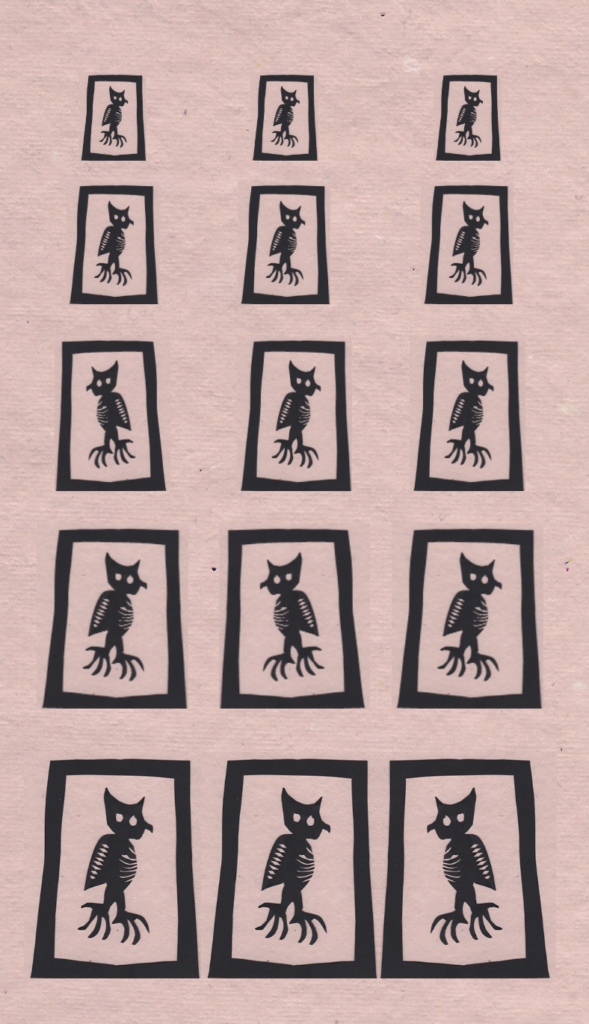
Hans Christian Anderson was a master at this obscure art, by the way. He used to cut out characters while he told his stories and then unfold them at the end. Here is one of his amazing papercuttings:
Jacob Olson’s review of The Book of Dog on the “Reviews and Robots” blog focuses on The Book of Dog’s critique of American culture, something that no other review of my novel has emphasized. It made my day. For a small press author every review is a gift, and that is even more true when it feels like your book connects with an individual reader in exactly the way you intended.
From the review:
“The Book of Dog is one of the strangest books you’ll ever read, yet somehow it works. This apocalyptic tale of the coming of the rapture pairs American ignorance with freakish occurrences, sending the read on a dystopian path through the stories of six women and the inevitable end of the world as we know it. I can’t begin to describe how strange of a read this is, and I’m amazed at how well all of the bizarre pieces work together to create this inspiring story.”
Here is the full review, complete with a very cute, Apocalyptic Pug.
Hi everyone. I’ve learned that if I get 5 more reviews on Amazon for The Book of Dog by Lark Benobi then I’ll be eligible for some promotional programs. If you’ve written a review on GR and not on Amazon, it would be a tremendous favor to me if you would also post on Amazon. Thank you and sorry for the wee promotional intrusion. Here is a picture of some whiptail lizards.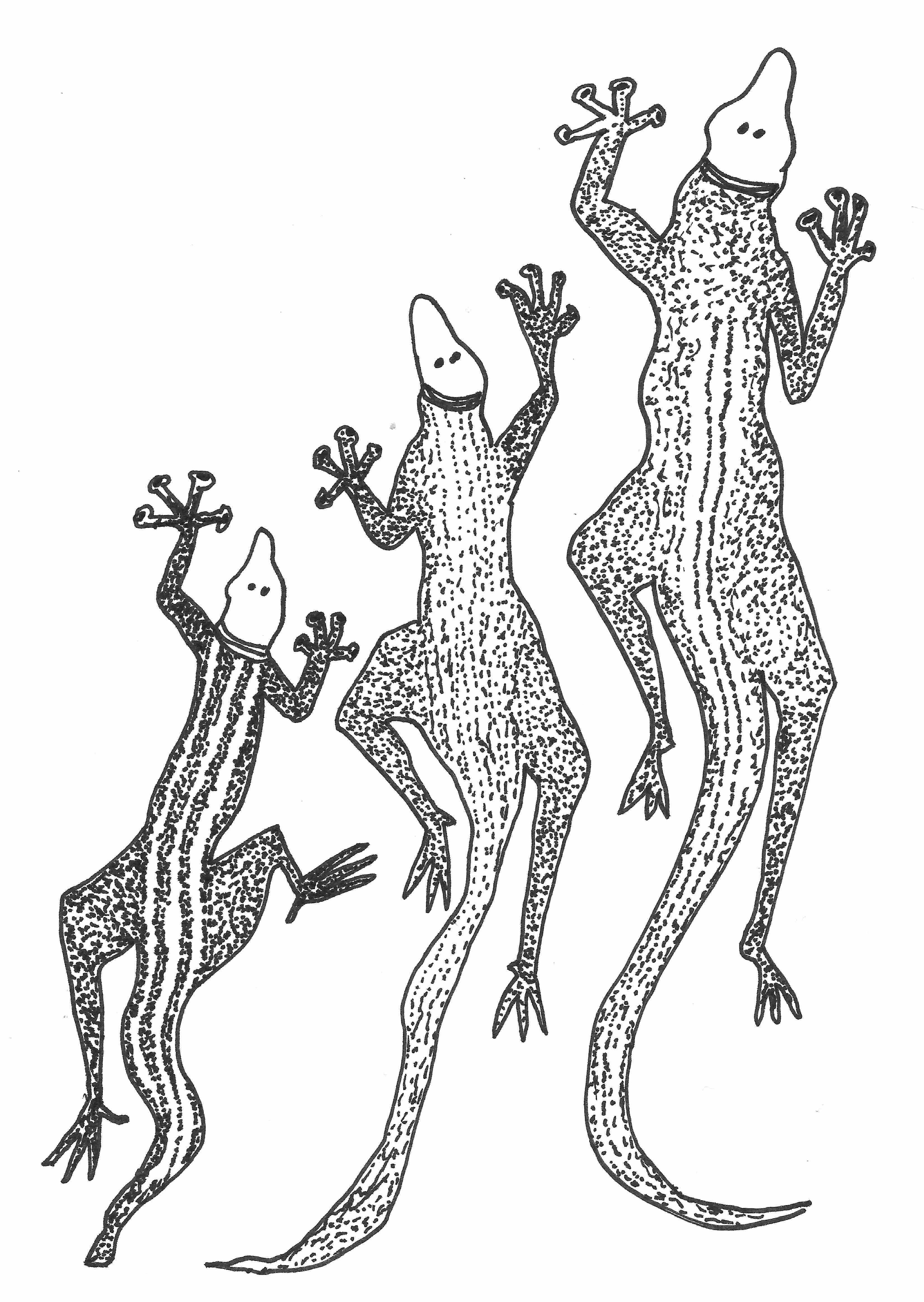 .
.
There is a lot I don’t love about Amazon but I am stunned & happy to see that they automatically linked the three versions of The Book of Dog on their site, without me asking–and also, THANKS to everyone who has left a review of The Book of Dog on Amazon, too!
I’m so grateful to Ilana Lucas for including The Book of Dog by Lark Benobi in her review of “3 New Books About Unusual Woman Warriors,” published in the online magazine Brit + Co today. I especially liked this part:
“The book serves as a metaphor for female powerlessness in male and religion-dominated societies, but its six heroines are still willing to kick ass and take names…the irreverent and fantastical novel is filled with evocative, stylized cartoons and is an ode to friendship. Individually, they may not be able to change very much, but together, every dog has her day.”
Here is a link to the full review.
I feel really good when readers describe my book as an “ode to friendship,” in particular, as an ode to female friendship. The novel was inspired and shaped by my friendships with other women, especially the friendships I have made since November 2016, with women I’ve met at marches and readings and gatherings of like-minded crones… we women are just now beginning to find our collective political power.
As I write this I’m listening to Bob Woodward, Superhero, talking with Terry Gross about the most dangerous man who has ever sat in the White House. It seems likely I will be reading FEAR by Bob Woodward very soon, along with about a million other people.
But so many other readings–not all of them new–have helped me cope and helped me to understand the world, since Trump’s election. Here are a few off the top of my head. I’ll probably post some more later. Deepest apologies for these all being men, this time–I will make it up one day.
- Frederick Douglass: “The Meaning of July Fourth for the Negro” (July 5, 1852) Douglass’s white friends seemed to think there was nothing untoward about asking a man who had suffered slavery to give the Independence Day address to the Ladies of Anti-Slavery Society of Rochester New York, and a time when nearly four million people were enslaved in the United States. What they got from Douglass was a masterpiece of rhetorical oratory and the most eloquent definition of white privilege ever written, even though the term ‘white privilege’ wasn’t current in the 19th century. After setting the 600 people at ease with his patriotic introduction praising the Founding Fathers, he confronts them with their hypocrisy, and asks: “why have you invited me to speak to you on your Fourth of July?…The Fourth of July is yours and not mine…You may rejoice, but I must mourn.” Profoundly moving. Douglass’s speech reminds me that we have been here before, and what is true and right is the same today as it was in Douglass’s time.
- Runagate, Runagate: a poem by Robert Hayden. Hayden’s subject is the flight of enslaved African Americans to the north; with only slight changes it could just as well be about the flight of Latino refugees to the north. I like to be reminded that terrible things have been overcome before in this country.
- Signs Preceding the End of the World by Yuri Herrera. A border story, about a very young woman making her way confidently and fearlessly through a world of men, many of whom wish to do her harm, and yet the young woman prevails, she triumphs, she finds a way to be fully alive and fully happy even with danger all around her. Much of what I love about Signs Preceding the End of the World has to do with what is not explained. The human relationships and even the landscape itself keep changing, shifting, in mirage-like realignments of feeling and color. The truth is never laid out in explicit detail and it seems right for the novel to remain in many ways unknowable, just as so many things that might happen on a journey across the border can’t ever be fully understood, or fully in control of those who make the journey. This novel gave me the sense of the border as an organic living country in its own right, with dignity as well as degradation, and hope as well as despair.
- The Plot Agains America by Philip Roth. Ignore anything you have been told about Roth’s treatment of his female characters long enough to read this book. It is one of those rare books that, like 1984, seems to capture our age before it happens. Granted, I am a Roth fan, but believe me, the women here are the core of the story and they are beautiful and deeply imagined characters.
- The Sarah Book by Scott McClanahan. I’ve already recommended this novel, here, when I said the novel taught me more about despair in West Virginia than reading sixteen billion profiles on Trump voters ever could. The people in McClanahan’s book seem real. Maybe they are. They are unique individuals who are coping with the stress of living in an impoverished state, where jobs are few, and hope is just a cynical memory of a feeling, and where becoming an addict seems like a reasonable life choice, and where living in a Wal-Mart parking lot is just the way things are. Read it to expand your empathy in an unexpected direction, perhaps.
well, five seems enough, for now.
On Sept 17 I’ll be speaking on a panel with some marvelous writers at Bookshop Santa Cruz and if you are within hailing distance it would be wonderful to see you there.
At the bottom of this post is a link to the event, and also, here is the essay that originally inspired me to organize the event (and to write The Book of Dog!) : “Writing in the Age of Trump,” originally published on the inspirational and super-smart website, “Women Writers, Women’s Books.”
And because this is me being intellectual, rather than completely silly, here is this serious selfie of me listening to the smashingly fine climax of the opera Don Giovanni while standing in front of Rodin’s Gates of Hell…which is exactly right for my book, as you will know, once you have read it.
~ lark benobi
Writing in the Age of Trump
I want to tell you something surprising. I want to tell you how Donald Trump has changed my writing forever, and in wonderful, empowering ways. I will begin my story on the night of November 6 2016, just after the state of Pennsylvania had tipped for Trump. In that moment I experienced an overwhelming need to write down how it felt to witness Mr. Grab-em-Etcetera become Leader of the Free World. I wrote very fast. I stayed up all night. I was so angry. I had no idea that millions of women on election night felt the same way until we all showed up on January 18 the following year for The Women’s March, the largest worldwide demonstration in history.
What I wrote that night didn’t turn out to sound so angry when I looked at it the next morning. Instead it made me laugh. And this was the first sign of the motivating magical power of Donald Trump, Muse. What I wrote on election night in a fit of anger eventually became the fourth chapter of a new novel, The Book of Dog, a political satire that early reviewers are calling “uproarious,” “laugh out loud funny,” and “raucous fun.” How did it happen? It beats me.
Something about that shock of that night propelled me toward the healing force of humor, even though I had never written humor before.
As the novel began to take shape–very quickly, it turned out–I thought a lot about the many ways that, In unsettled political times, good satire can upend typical ways of thinking. I was excited to be writing some. You would think satire would be thriving just now. But it turns out that Trump’s election upended satire completely.
If you search online for “Satire in the Age of Trump” you will discover a trove of articles that contend that satire is now on life support. Comic impersonation and exaggeration and shock humor are the tools of modern satire, but they are the wrong tools when the President can out-shock the best of us. What good are insult-driven jabs, when Trump is the master of them? What good are jokes that demean and mock, when we elected a Mocker in Chief?
So satire would need to change. In the age of Trump, satire would need to become less reptilian and more mammalian. It would need to become warm-blooded and swift, instead of stomping around like Godzilla. In an age when bad people are empowered by ugly talk, satire could not talk ugly in turn. It would need to get kind. With each draft of The Book of Dog I tried to be as kind as possible, both to my characters and to my readers. I tried to take tender care of everyone.
I’m not talking about censoring the message, by the way. It’s amazing the satirical lengths one can go to when speaking politely. Trump’s election had changed the map of what was funny, and what was not. I needed to use better diction. I needed to leave the salty Anglo-Saxon curse words for another time. I needed to write my outrage in the most elegant way possible. I needed to whisper it. I needed to re-read Voltaire. Did you know that Voltaire wrote a scene in Candide much like the scene in The Road by Cormac McCarthy? The one where humans are being stored as living meat to be consumed one piece at a time?
McCarthy made his scene revolting, and Voltaire made the same scene hilarious. After reading Voltaire’s scene I realized anything is acceptable, if you say it sweetly enough. And then I watched Charlie Chaplin’s The Great Dictatorand rediscovered how satire can do more than make you laugh, or feel superior. It can elevate and encourage. It can leave you hopeful instead of angry. Watch The Great Dictator and see for yourself, especially this scene.
Here’s the thing: it’s not only satire that has been upended by the Age of Trump. I honestly believe that language, and the way we use language as writers, has been fundamentally disrupted by the election of a man who has such an easy relationship with the truth. Something big and unmapped is happening to all kinds of writing these days–to language itself, both the way it is used to communicate, and the way it is used to dissemble. You may have discovered your writing has changed in response, no matter what your chosen genre.
Walt Whitman wrote: “these are the days that must happen to you.” These are the days that compelled me to write a humorous farce about six women who face an Apocalyptic Beast, a.k.a. “The President.”
These are the days that must happen to you, too, and to us all, as women and as writers: days when what is ‘fact’ or ‘fake’ changes with the flip of a digital dial; when #metoo truths are called “lies” by powerful men; when simple and innocent messages on a twitter feed can become tomorrow’s viral outrage. Language itself is under attack. Words seem less reasonable and predictable than ever before.
As women writers we will need to be crafty. We will need to write bravely, and at times into uncomfortable new territories. We will need to listen to one another. We will need to support one another. These are the days when more women than ever before are finding their voices. I thank Donald Trump for it. What happens next might surprise us all.
—
Lark Benobi began writing The Book of Dog on election night 2016, and drew inspiration for her story from the women who are speaking out, running for office, marching, and doing all they can to improve our world. Lark lives in Santa Cruz, California.
About THE BOOK OF DOG
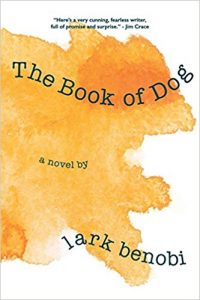 It’s the night of the Yellow Puff-Ball Mushroom Cloud and a mysterious yellow fog is making its way across America, sowing chaos in its path. Mt. Fuji has erupted. The Euphrates has run dry. The White House is under attack by giant bears, the President is missing, and the Vice President has turned into a Bichon Frise. It’s Apocalypse Time, my friends. Soon the Beast will rise. And six unlikely women will make the perilous journey to the Pit of Nethelem, where they will stop the Beast from fulfilling his evil purpose, or die trying.
It’s the night of the Yellow Puff-Ball Mushroom Cloud and a mysterious yellow fog is making its way across America, sowing chaos in its path. Mt. Fuji has erupted. The Euphrates has run dry. The White House is under attack by giant bears, the President is missing, and the Vice President has turned into a Bichon Frise. It’s Apocalypse Time, my friends. Soon the Beast will rise. And six unlikely women will make the perilous journey to the Pit of Nethelem, where they will stop the Beast from fulfilling his evil purpose, or die trying.
The Book of Dog is a novel of startling originality: a tale of politics, religion, demon possession, motherhood, love, betrayal, and easygoing bestiality. A ridiculously plausible story set in a near-future America, it wryly explores how even the most insignificant and powerless of people, when working together, can change the world.
LINK TO BOOKSHOP Santa Cruz EVENT:

